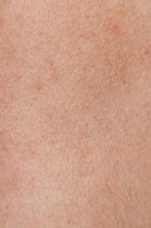Featured Products
Explore Products
- In-Stock Tumor Cell Lines
- Human Orbital Fibroblasts
- Human Microglia
- Human Pulmonary Alveolar Epithelial Cells
- Human Colonic Fibroblasts
- Human Type II Alveolar Epithelial Cells
- Human Valvular Interstitial Cells
- Human Thyroid Epithelial Cells
- C57BL/6 Mouse Dermal Fibroblasts
- Human Alveolar Macrophages
- Human Dermal Fibroblasts, Adult
- Human Lung Fibroblasts, Adult
- Human Retinal Muller Cells
- Human Articular Chondrocytes
- Human Retinal Pigment Epithelial Cells
- Human Pancreatic Islets of Langerhans Cells
- Human Kidney Podocyte Cells
- Human Renal Proximal Tubule Cells



 Human Keratinocytes, Adult are primary cells derived from adult human epidermis, specifically from the basal layer of the skin. These cells play a critical role in forming the epidermal barrier and protecting against mechanical, chemical, and microbial damage. They are used in studies of skin disorders such as psoriasis, squamous cell carcinoma, and wound healing. Keratinocytes differentiate into basal, spinous, granular, and cornified layers and exhibit small, polygonal morphology with a high nuclear-cytoplasmic ratio, becoming flatter during differentiation. Cells are typically used at early passage to ensure high viability. Karyotype analysis shows a normal diploid chromosomal set in early passages. These cells express keratinocyte-specific markers, including KRT5, KRT14 (basal), and KRT1, KRT10, and involucrin.
Human Keratinocytes, Adult are primary cells derived from adult human epidermis, specifically from the basal layer of the skin. These cells play a critical role in forming the epidermal barrier and protecting against mechanical, chemical, and microbial damage. They are used in studies of skin disorders such as psoriasis, squamous cell carcinoma, and wound healing. Keratinocytes differentiate into basal, spinous, granular, and cornified layers and exhibit small, polygonal morphology with a high nuclear-cytoplasmic ratio, becoming flatter during differentiation. Cells are typically used at early passage to ensure high viability. Karyotype analysis shows a normal diploid chromosomal set in early passages. These cells express keratinocyte-specific markers, including KRT5, KRT14 (basal), and KRT1, KRT10, and involucrin.